The best food and drink to help you sleep
Shut-eye foods
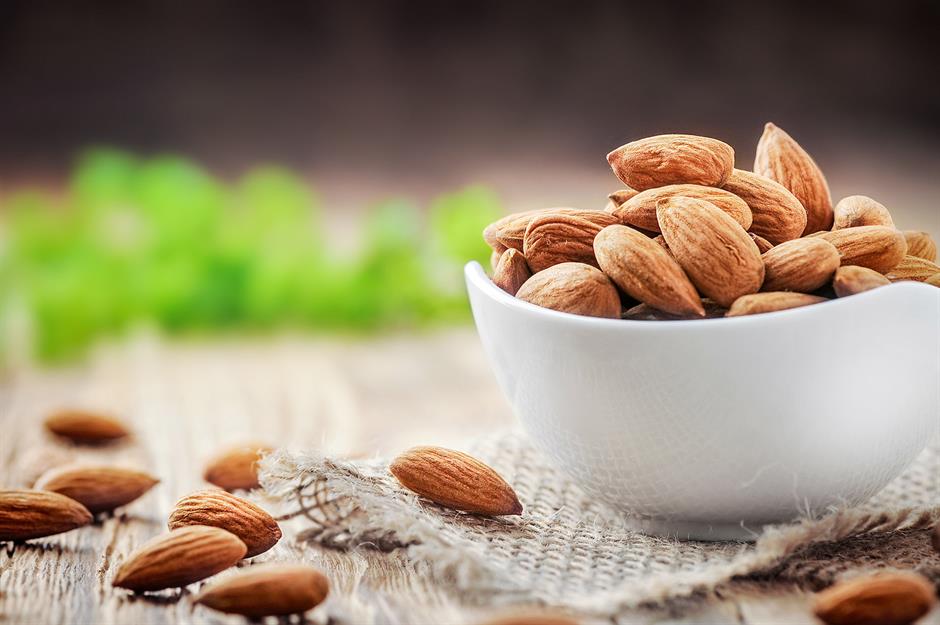
Many people have trouble sleeping, whether because of work worries, stress, overwhelming to-do lists or other concerns and issues. But did you know that simple dietary changes can tip the balance in favour of better and more refreshing sleep? Here are the foods and drinks that will help you slumber more soundly.
Click or scroll through our gallery to discover the best sleep-inducing foods and drinks, counting down to the most effective of all.
We've based our ranking on thorough research, and on the opinions of our well-travelled (and well-fed) team. The list is unavoidably subjective.
32. Porridge
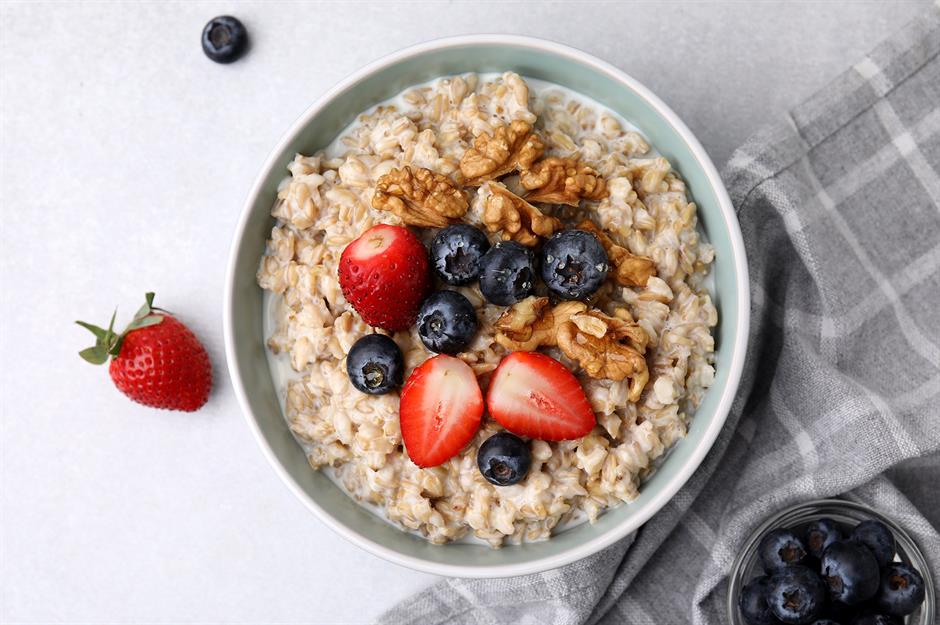
It's not often you feel like eating porridge as an evening meal, but you could be convinced to try it once you've learnt about its sleep-boosting properties. Porridge is great because it's loaded with carbohydrates – just what you need to help the amino acid tryptophan produce serotonin and melatonin. It's also a good source of calcium, magnesium, phosphorus, silicon and potassium. Just don't finish it with masses of sugary toppings.
31. Fresh herbs
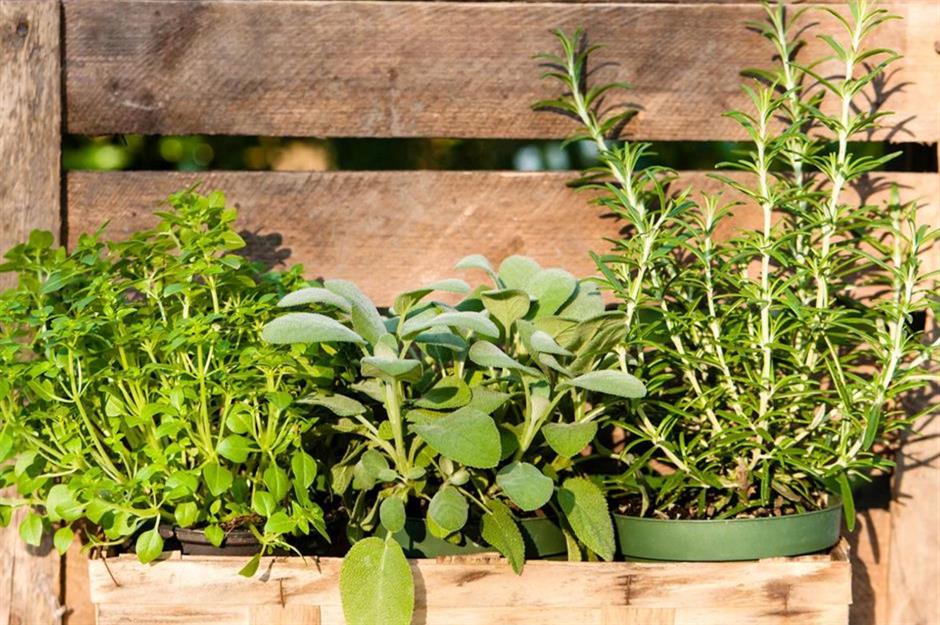
Fresh herbs don't just elevate the flavour of food – they can also help you calm down. Sage and basil are especially helpful for reducing tension and promoting healthy sleep. So, say goodbye to store-bought pasta sauces; instead, make homemade varieties with lots of fresh herbs (and avoid adding stimulating ingredients such as black pepper or red pepper).
Sponsored Content
30. Peanut butter
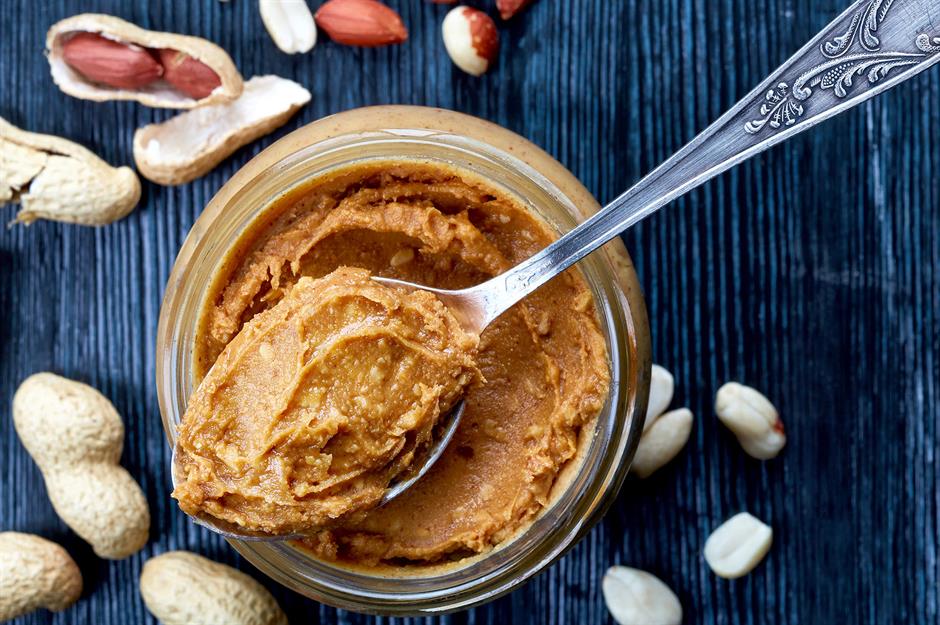
Saturated fats and trans fats will reduce your serotonin levels, so they're best avoided before bedtime. If you do fancy a bite to eat in the evening, though, you can turn to heart-healthy unsaturated fats that will actually improve your serotonin levels. The Cleveland Clinic suggests trying peanut butter (provided it's made from 100% peanuts), perhaps combined with wholegrain crackers.
29. Grapes

Aside from tasting sweet and delicious, grapes have all kinds of hidden health benefits. They can help maintain brain health, slow down aging, improve bone health and – most importantly, for this gallery – allow you to enjoy a good night's sleep. After all, a handful of grapes contains a degree of melatonin, the hormone that helps sleep. Just make sure you're eating grapes in their purest form, as opposed to grape juice or raisins.
28. Tempeh
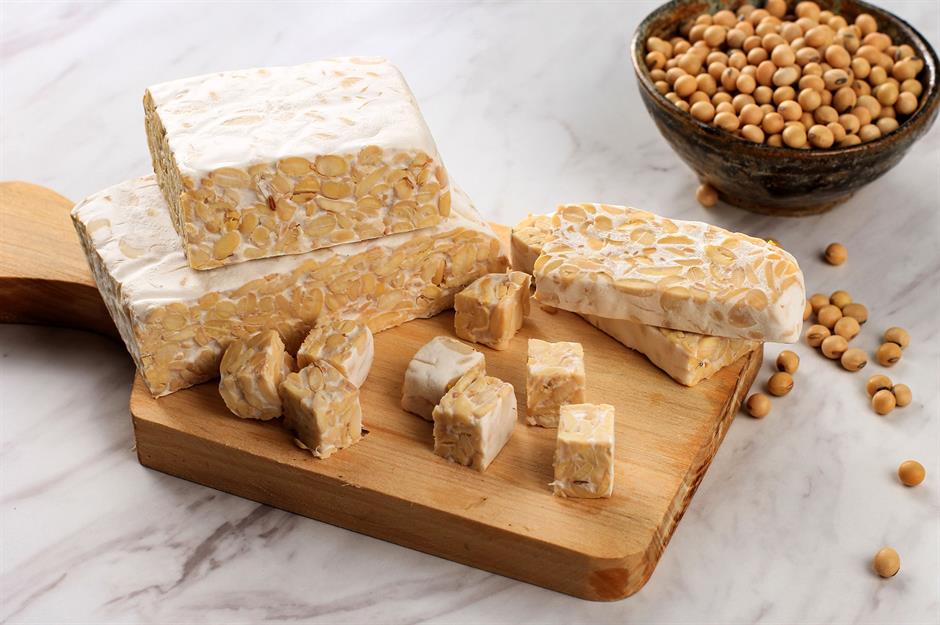
In February 2025, a study published in the Journal of Food Science suggested that fermented food might help to aid sleep. The researchers stressed that the study wasn't conclusive because of small sample sizes and a lack of overall research into this area, but it could be worth experimenting with fermented foods if you're struggling to sleep. Possible sources of the probiotics found in fermented food are tempeh (pictured), kombucha and miso. Note that spicy fermented food should be avoided before bed.
Sponsored Content
27. Decaf coffee
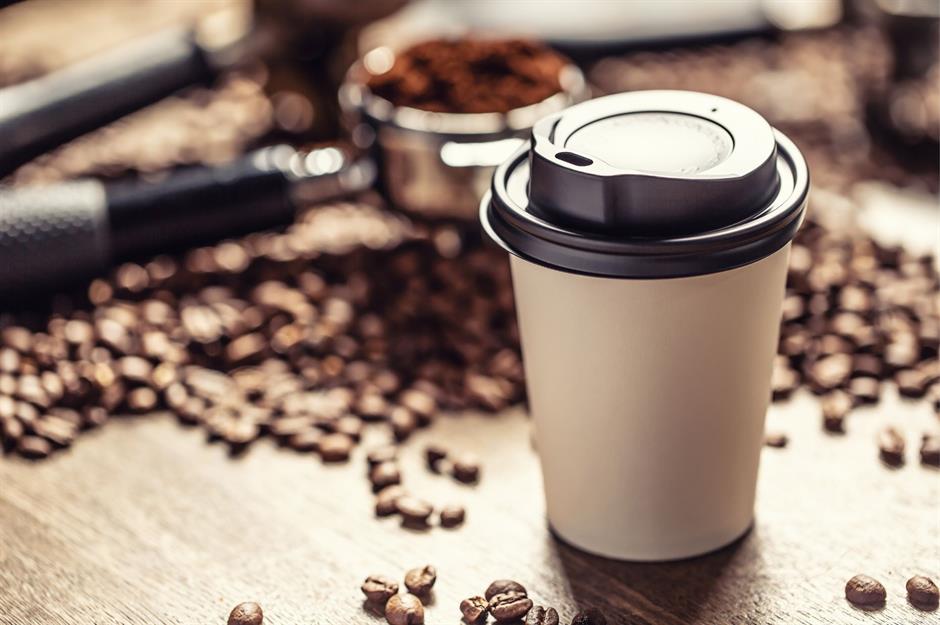
While it’s tempting to beat an afternoon slump with a double espresso, it’s best to switch out standard coffee for the decaffeinated variety once mid-afternoon swings around. Research published in the US-based Journal of Clinical Sleep Medicine found that consuming caffeine as much as six hours before bedtime can result in some people sleeping an hour less at night.
26. Crab
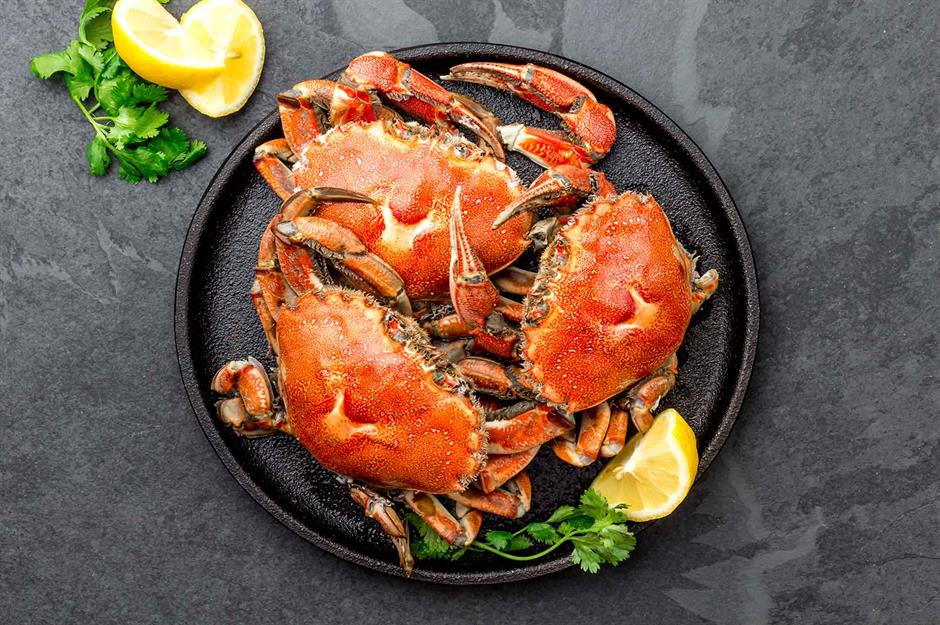
A low dietary intake of the mineral selenium is becoming increasingly common and has been linked with difficulty nodding off. Eating more crab is one tasty way of getting your selenium fix. This handy component not only helps with sleep, but it also helps prevent memory loss and promotes healthy thyroid function. The shellfish also contains crucial sleep nutrients such as calcium, zinc and vitamin B6.
25. Warm milk
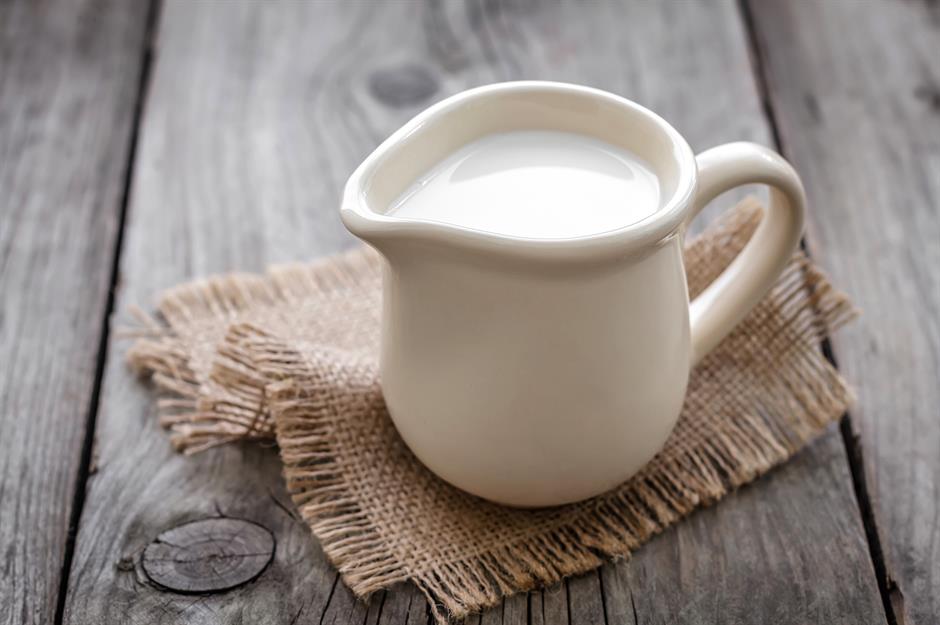
Turns out this old wives’ tale is actually true – sort of. A recent review study concluded that while consuming dairy products helps improve sleep quality, there’s no specific benefit to drinking milk at bedtime. Instead, consuming calcium-rich dairy every day as part of a balanced diet is thought to help boost sleep.
Sponsored Content
24. Beansprouts
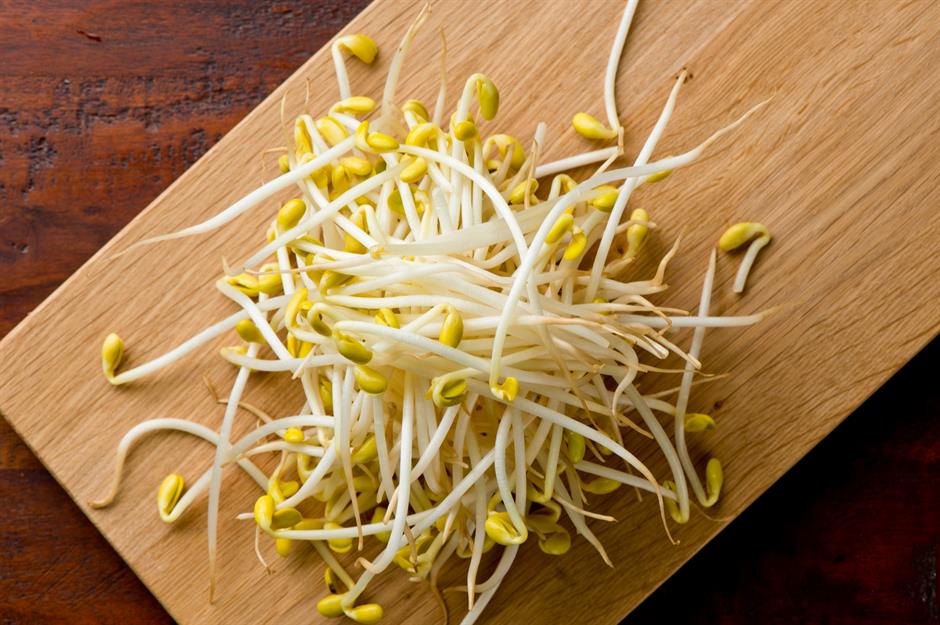
A tasty addition to Asian dishes, beansprouts contain a good amount of GABA – a chemical that increases alpha waves in the brain. According to research, alpha wave action plays a key role in enhancing sleep and encouraging relaxation. Throw a handful of beansprouts into your next stir-fry to reap the benefits.
23. Spinach
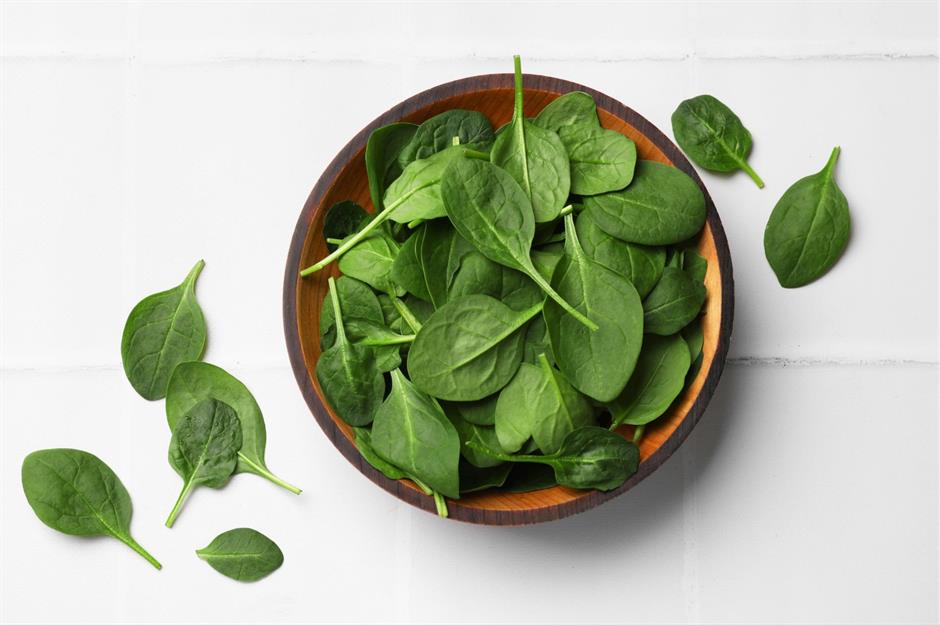
Spinach is packed full of the nutrients needed to keep your body and brain healthy. Delicious in curries, salads and pastries, this leafy green is rich in magnesium (a nutrient known for its muscle-relaxing qualities) and calcium, another key mineral linked with promoting sleep. You could easily combine spinach with other ingredients on this list for the perfect sleep-promoting meal.
22. Greek yogurt with honey
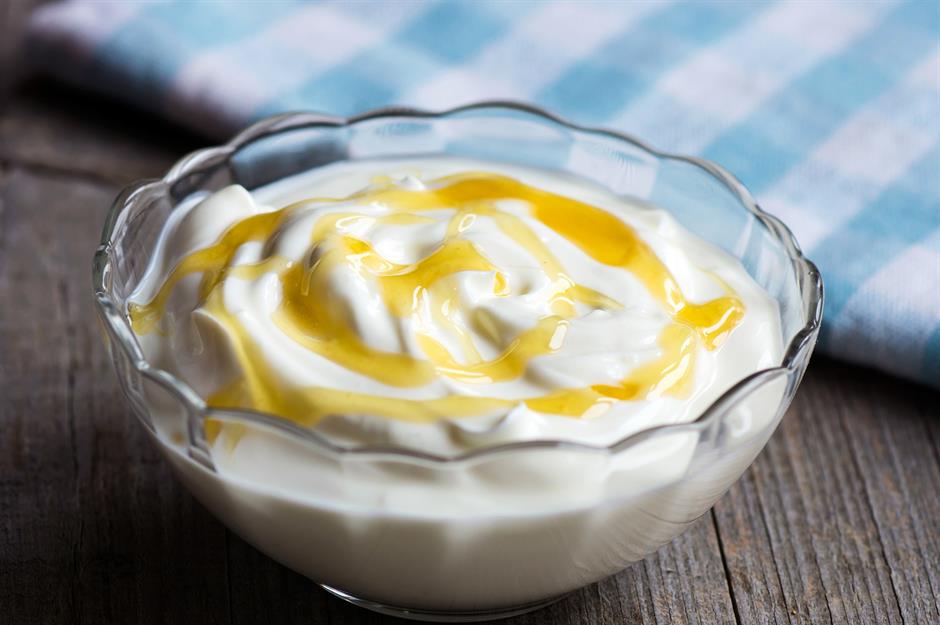
A tasty tryptophan and carb–packed combo that's sure to transport you to slumberland is protein-rich Greek yogurt with a drizzle of honey. A great alternative to a sugar-loaded scoop of ice cream, yogurt is super creamy and has the extra benefit of being very high in snooze-friendly calcium. Some research shows that honey can also promote good sleep, although not everybody agrees. It does, however, taste delicious with yogurt.
Sponsored Content
21. Rice
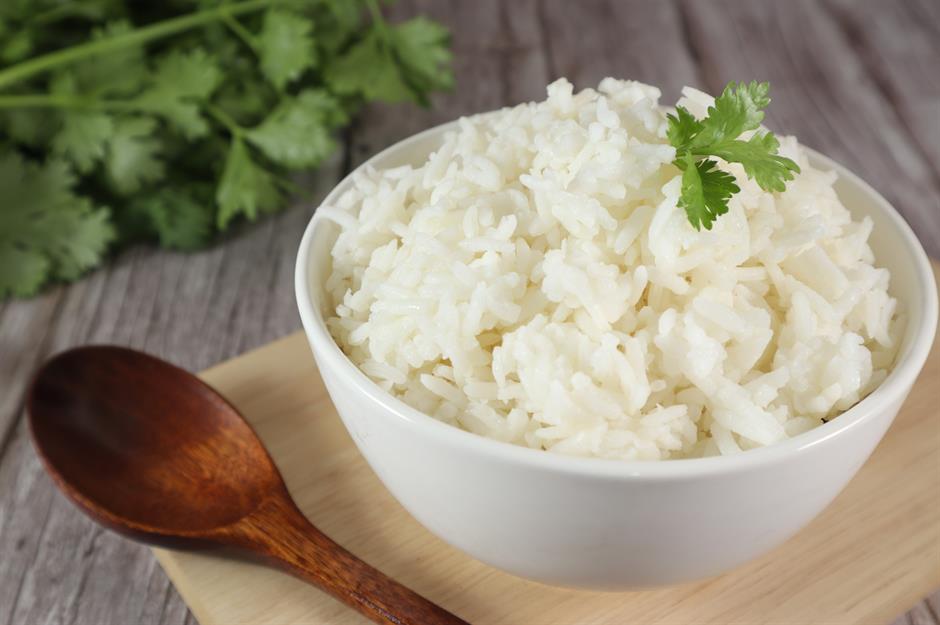
Research suggests that the high glycaemic index of rice (which means it releases energy quickly) makes it good for inducing sleep. Glucose in the blood makes it easier for tryptophan – the amino acid that generates serotonin and melatonin in the body – to cross into the brain. On the whole, though, lower GI carbs (lentils, wholewheat pasta, rye bread, etc) tend to be healthier. So, save the rice trick for when a good night’s sleep is particularly important.
20. Cottage cheese
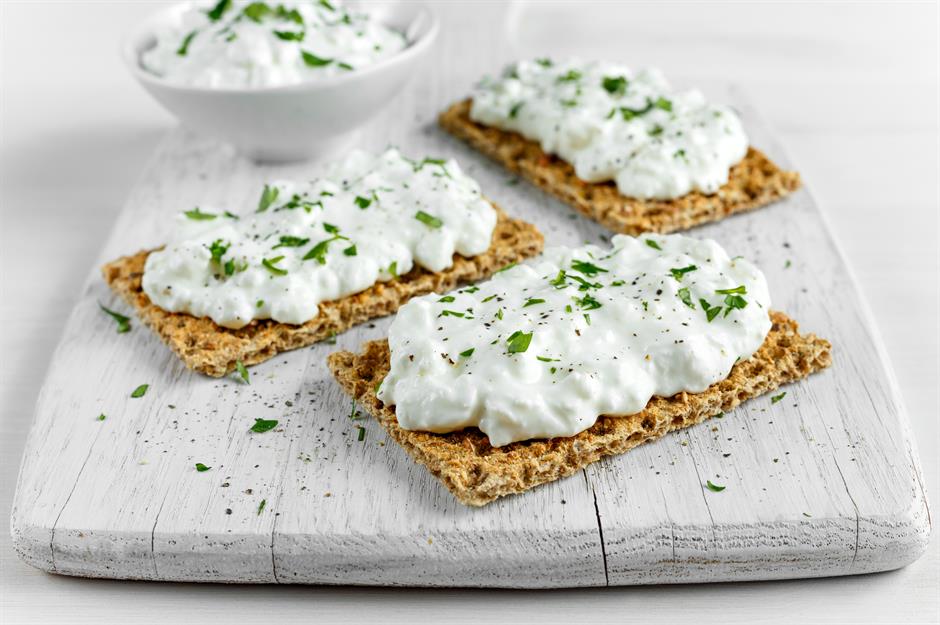
For a good night’s kip, steer clear of platters laden with aged cheeses such as Parmesan, Cheddar and Brie; instead, direct your attention to younger styles such as cottage cheese. Loaded onto low-sodium crackers or crispbreads, cottage cheese makes for an ideal bedtime snack, providing a balance of tryptophan (for initiating serotonin and melatonin formation) and carbohydrates (needed to transport this amino acid to the brain).
19. Black beans
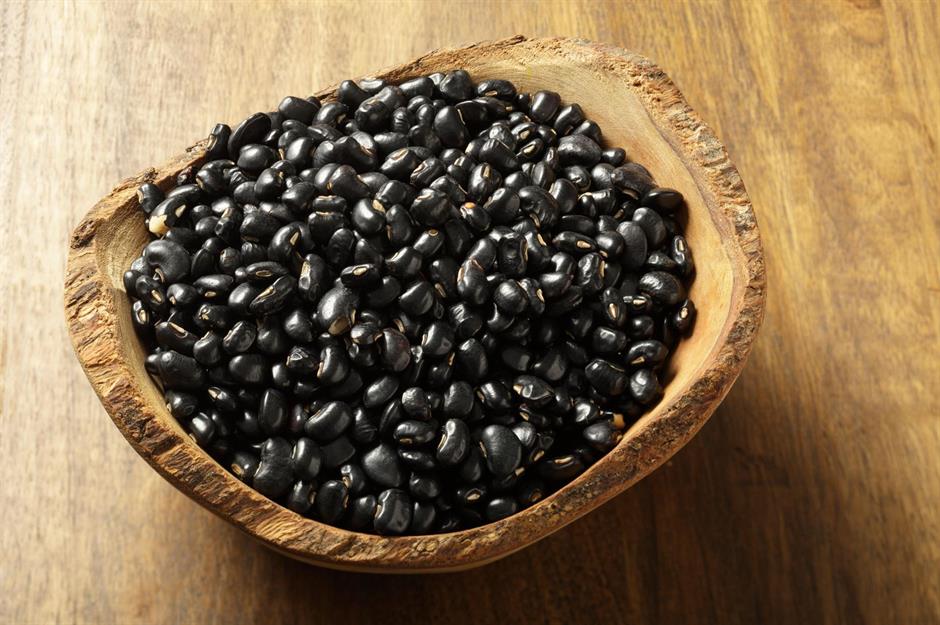
Research has proven that this tasty plant-based food can reduce high blood pressure, and it's been shown to promote sleep quality, too. Great for adding protein to all sorts of plant-based dishes (from quesadillas to Chinese-style sauces), black beans are packed with that all-important tryptophan, helping to ensure you stay asleep all night long.
Sponsored Content
18. Prunes
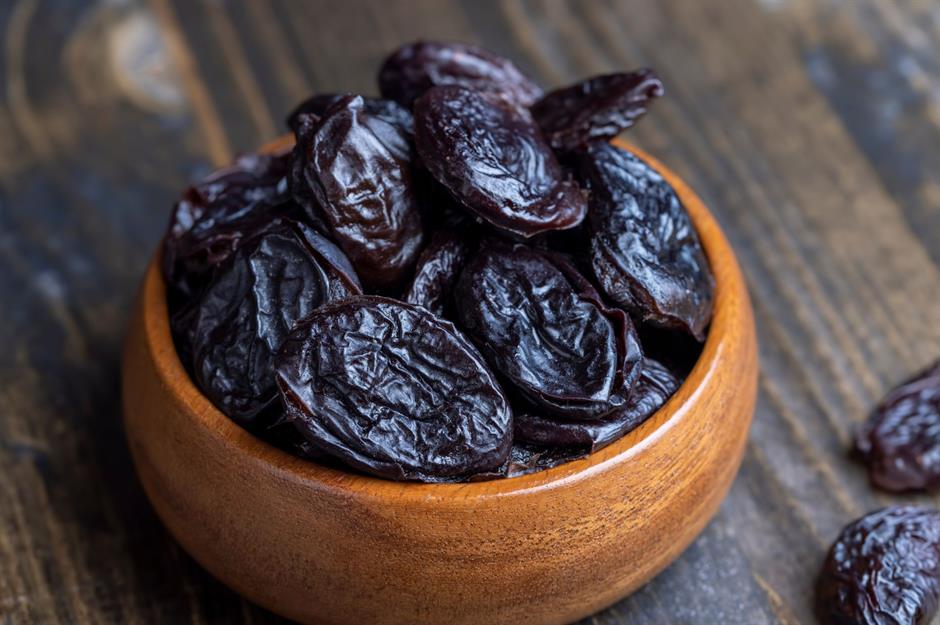
Although delicious, some dried fruits are highly processed and laced with added sugars. But, if you do fancy getting your dried fruit fix, prunes are a brilliant pre-bed snack without all those unwanted added extras. Prunes are packed with nutrients, including calcium, vitamin B6, iron and magnesium, so you're more likely to rest easy after eating a few.
17. Eggs
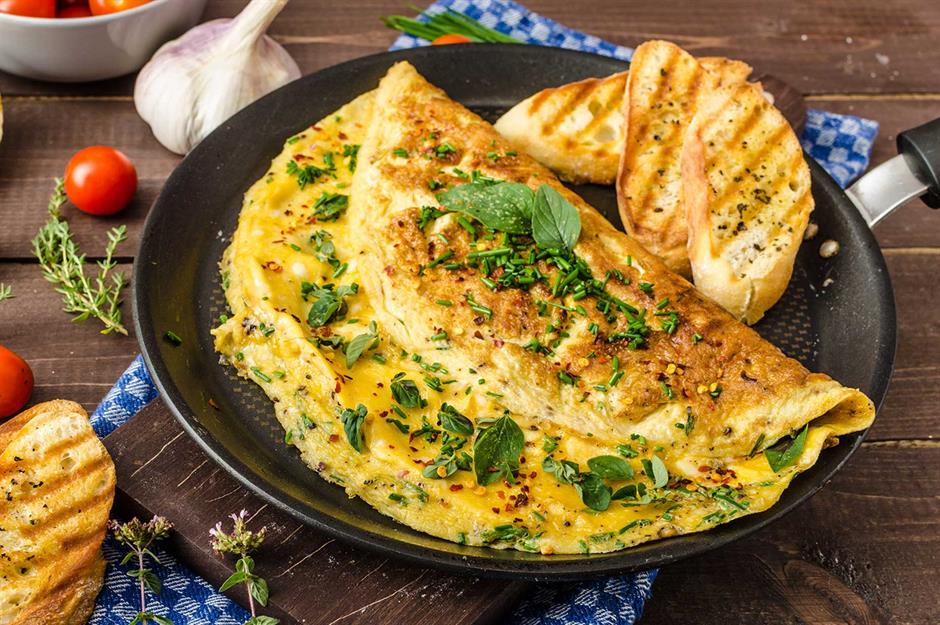
Turkey is often held up as the best source of tryptophan; however, many everyday foods are rich in this amino acid, which is the raw material for making sleep-inducing hormones in the body. Devour a three-egg omelette, and you’ll have bagged 250mg tryptophan, (your minimum daily requirement) in one sitting. Dairy, oats and edamame beans are other good sources.
16. Pistachios
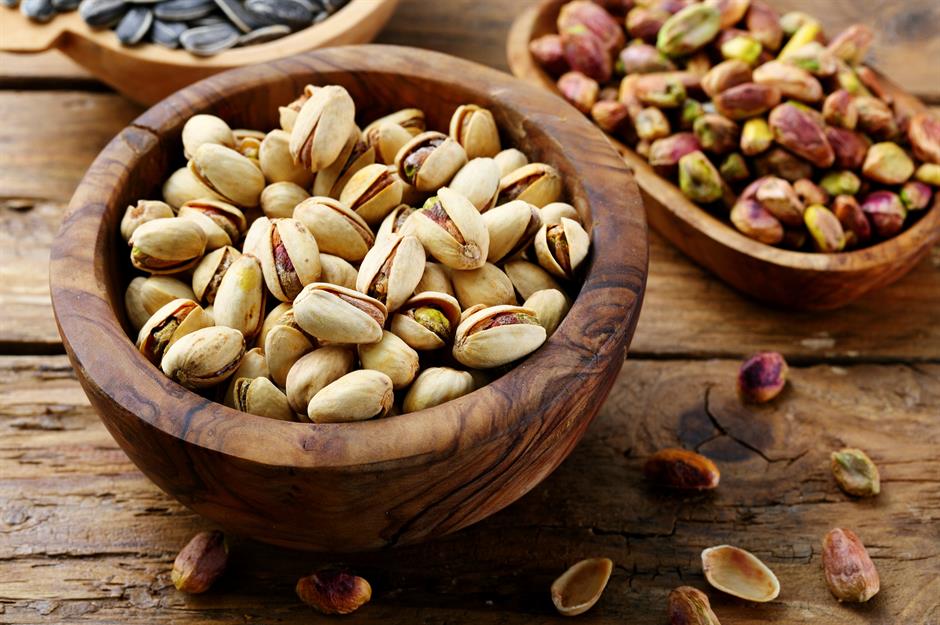
Tasty nuts that are guaranteed to get you into doze mode, pistachios contain high levels of vitamin B6 and magnesium, both of which are key in helping to promote good sleep. Plus, research has shown that the green-hued nuts are among the top natural sources of melatonin, a powerful hormone that helps boost the body's internal clock and communicate when it's time to rest. A handful of unsalted pistachios before bed is a recipe for sleep success.
Sponsored Content
15. Lean proteins
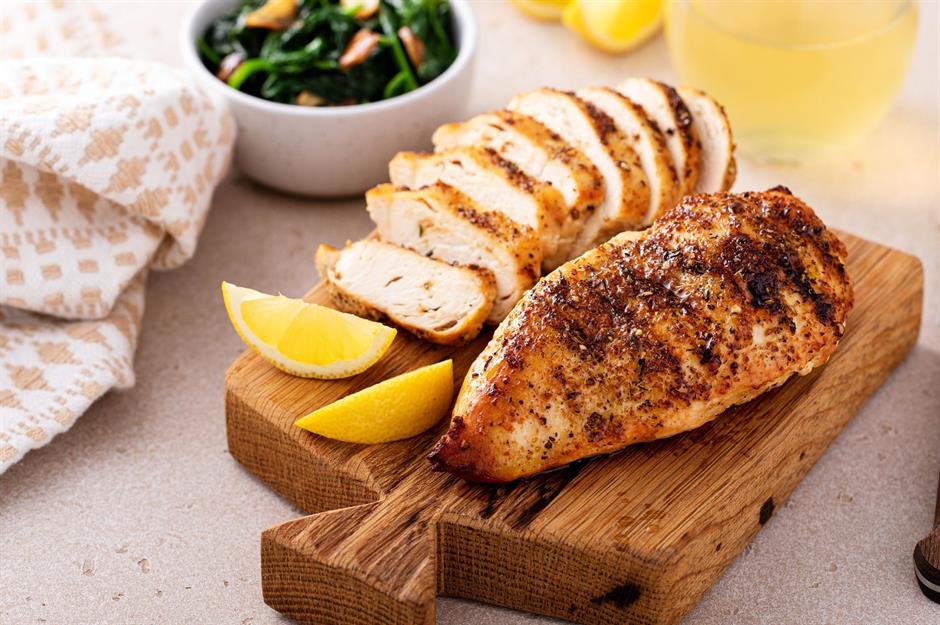
Big day tomorrow? Save the sirloin for a special occasion and stick to lean proteins at dinnertime to ensure you have a restful night’s sleep. Meats such as turkey and chicken will not only leave you feeling lighter, but they're also bursting with the handy amino acid tryptophan, which helps to boost serotonin levels in the body.
14. Canned sardines
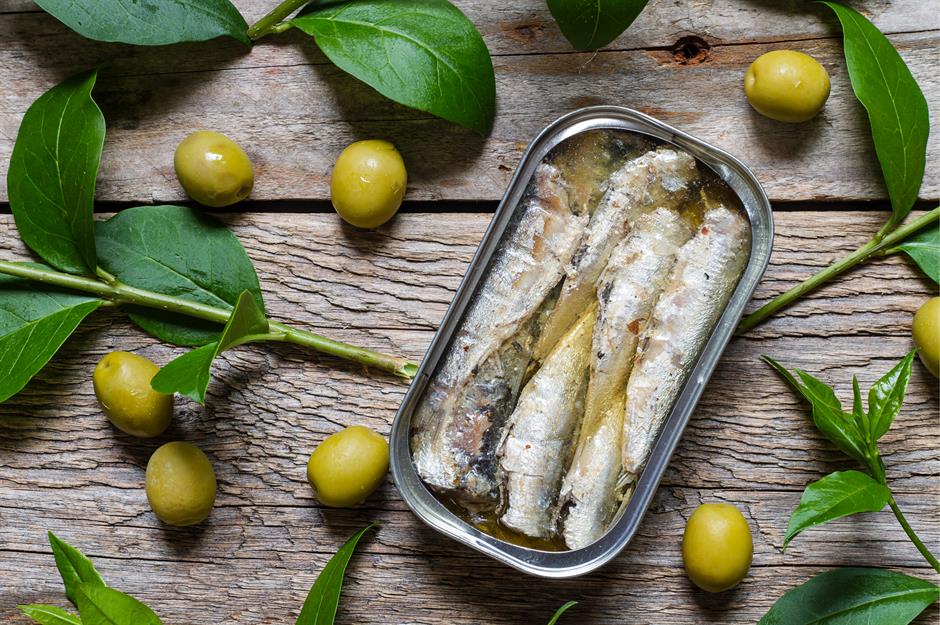
Data from a National Health and Nutrition Examination Survey confirms that a low calcium intake is specifically linked with difficulty nodding off and less restorative sleep. Canned sardines are a terrific calcium source for people who can’t tolerate dairy (or don’t want to consume it). Sardines are also packed with healthy omega-3 fatty acids, which are thought to help increase feelings of sleepiness.
13. Soya foods
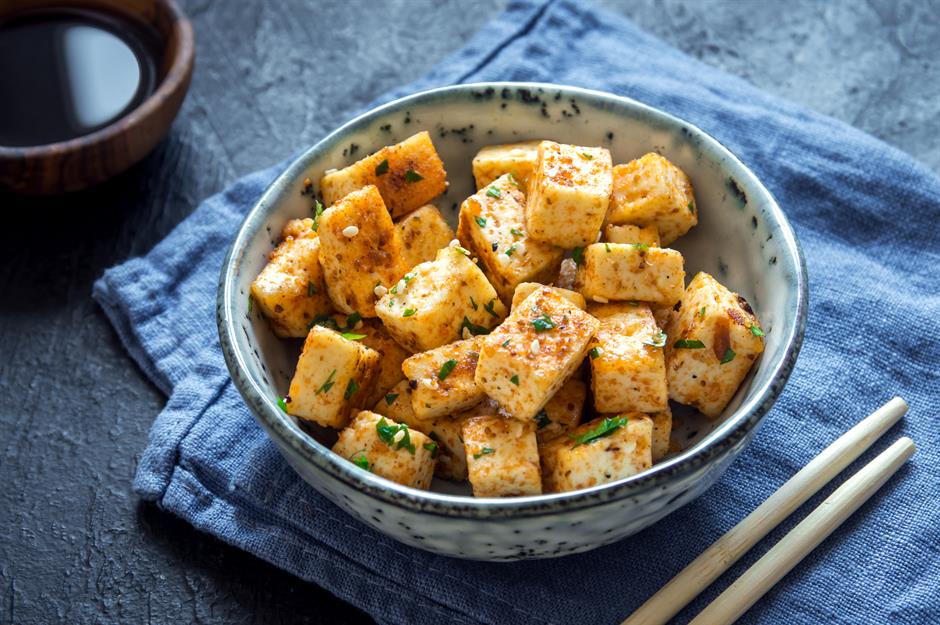
In a 2015 study of Japanese adults, a greater intake of isoflavones, found in soya products such as tofu, was linked with higher chances of getting optimal sleep (around seven to eight hours a night). It’s thought that isoflavones act like a weaker version of oestrogen, which has a beneficial effect on sleep quality. Consuming daily portions of soya, which could be in the form of tofu, a glass of soya milk or a serving of edamame beans, made it more likely that people got enough sleep.
Sponsored Content
12. Lemon balm
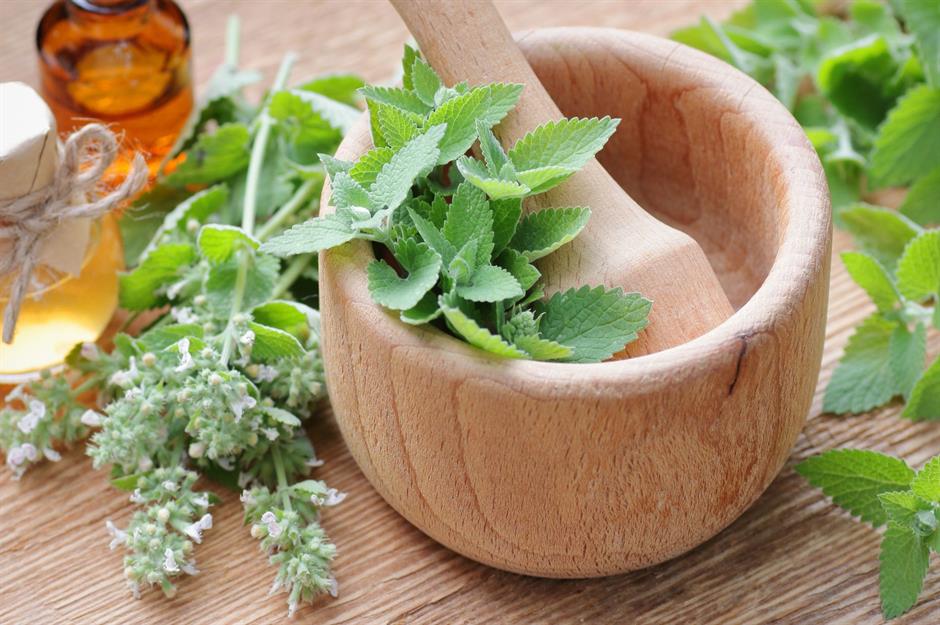
This flavourful plant doesn't just smell and taste nice – it could help you enjoy better sleep, too. A 2018 research study found that lemon balm supplements decreased sleep disturbances and anxiety in people with heart diseases. Try adding crushed lemon balm leaves to olive oil, scattering them into chicken soup, or making a soothing tea by infusing the leaves in hot water. Part of the mint family, lemon balm grows easily in a patio container or on a windowsill.
11. Brazil nuts
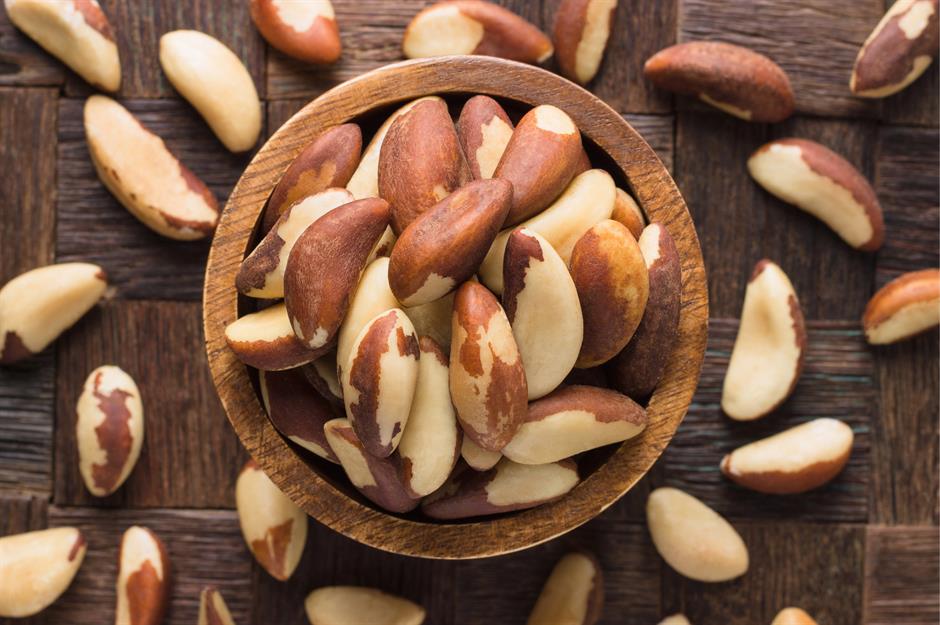
Brazil nuts are packed with magnesium, which can enhance levels of the sleep-regulating hormone melatonin and aid muscle relaxation. Low levels of magnesium in the blood can trigger sleep difficulties, which studies have shown are improved when supplements of the mineral are taken. Great for topping salads, whizzing up in pesto or eating on their own, the crunchy nuts also boast high levels of selenium, a mineral packed with antioxidants and immune-boosting benefits.
10. Wholegrains
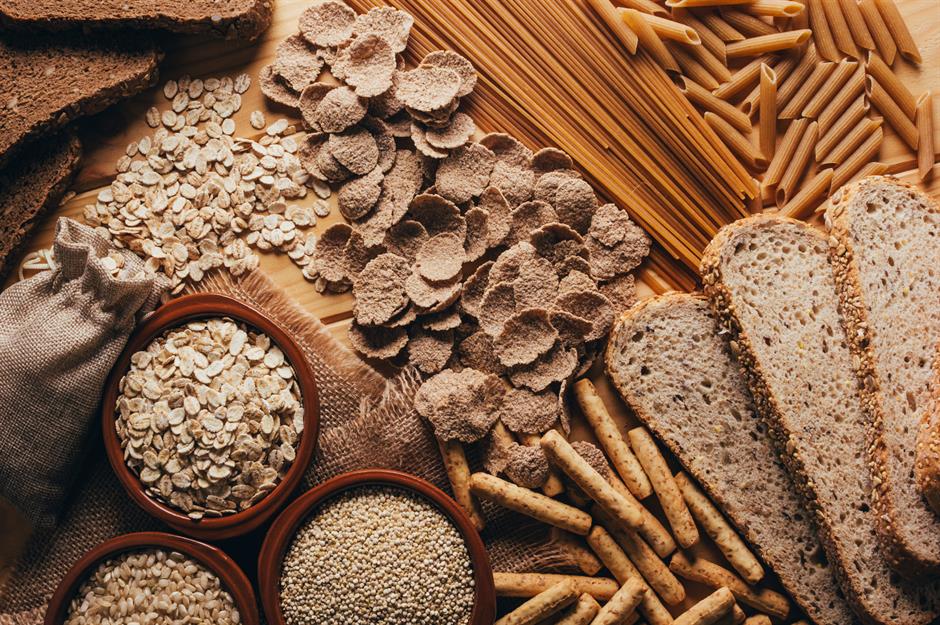
A high fibre intake is associated with more rejuvenating sleep, according to a 2016 study. For the research, 26 adults spent five nights in a sleep lab, during which their nutrient intake was carefully monitored. A higher intake of fibre produced deeper, or slow wave, sleep – the type that makes you feel perkier in the morning. Wholegrains such as oats, quinoa, brown rice and wholegrain pasta are excellent sources of fibre, meaning a dinner packed full of these will likely result in a better night's rest.
Sponsored Content
9. Butter beans
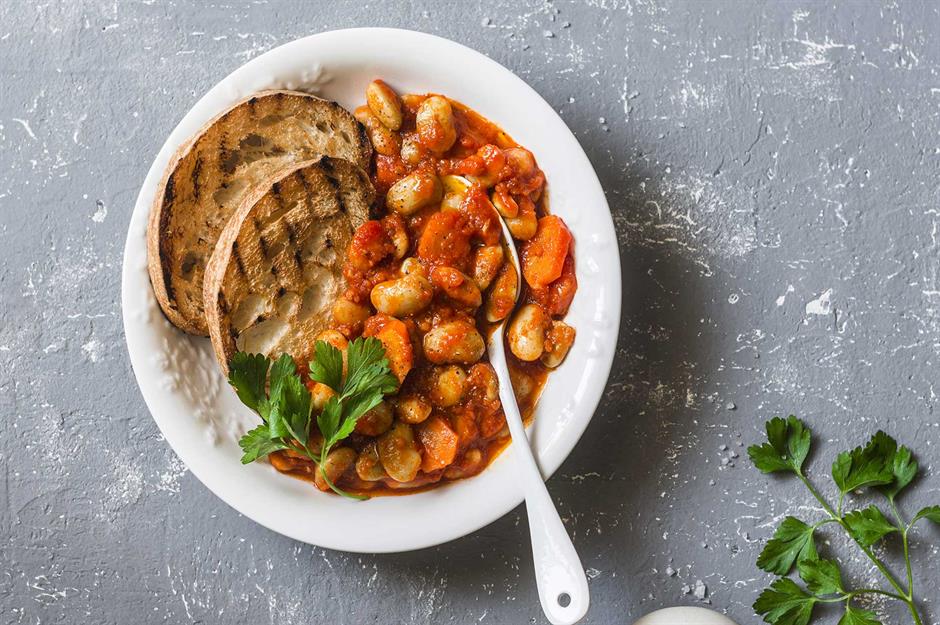
Who knew that butter beans (also known as lima beans) could help you get your zzzs? According to a study involving medical students, the odds of having good sleep quality were over six times higher in those who consumed these pulses, compared with those who didn’t. Butter beans contain phosphorus, magnesium and vitamin B6, which all contribute to good sleep.
8. Oily fish
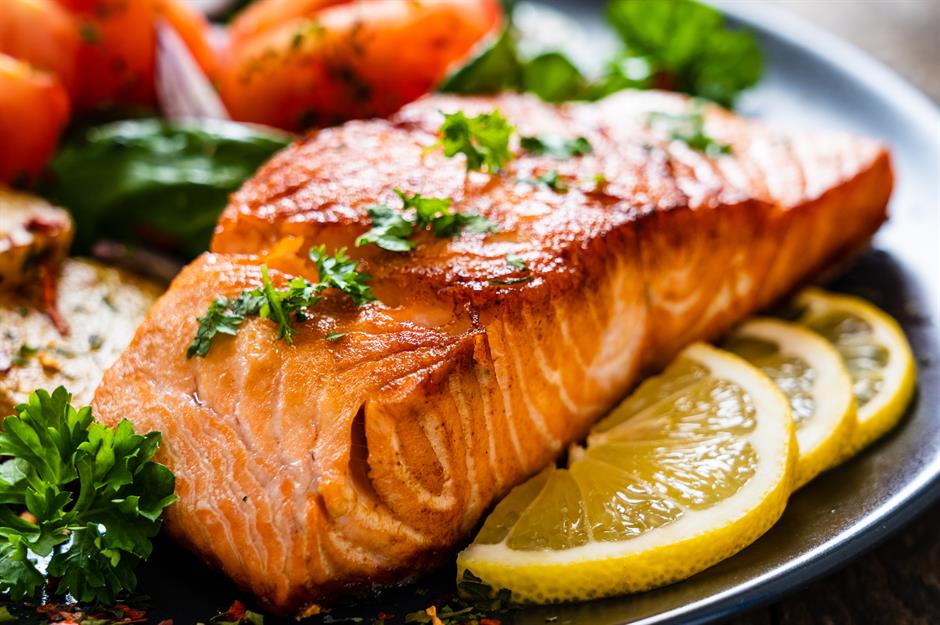
In a 2014 study, men who ate salmon three times a week for six months showed small improvements in sleep and daily functioning. Another bonus outcome included having a higher heart rate variability (HRV), which is generally a sign that the body is less stressed. The vitamin D and omega-3s found in oily fish also help increase the production of soothing serotonin.
7. Chamomile tea
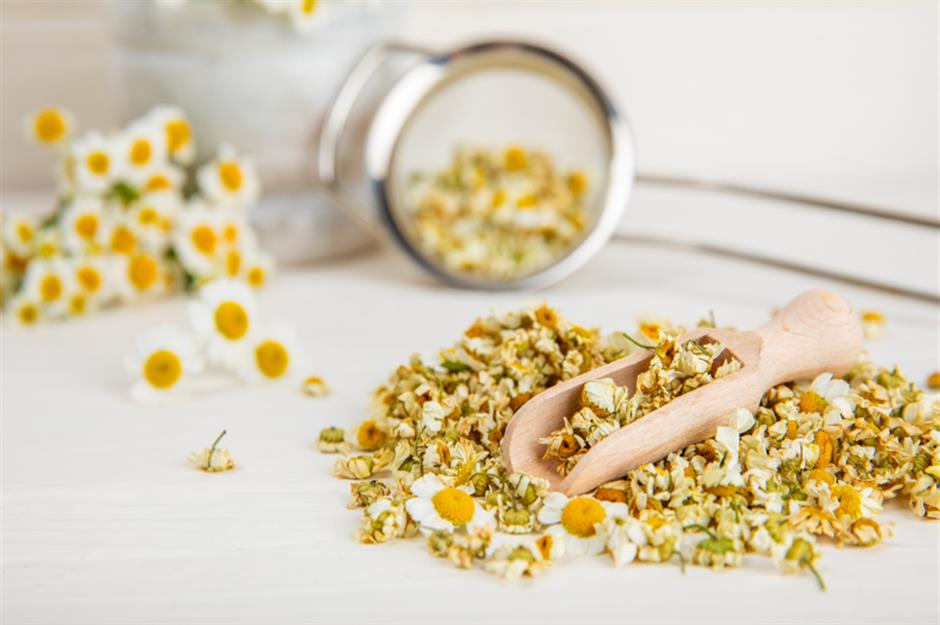
Chamomile tea is an age-old sleep remedy that's enjoyed across the globe. In a 2015 study, researchers found that the floral tea could aid postnatal mothers with stress and see them sleep more efficiently over the short term. Other benefits include relieving menstrual symptoms, reducing blood sugar levels and fighting inflammation.
Sponsored Content
6. Mediterranean diet
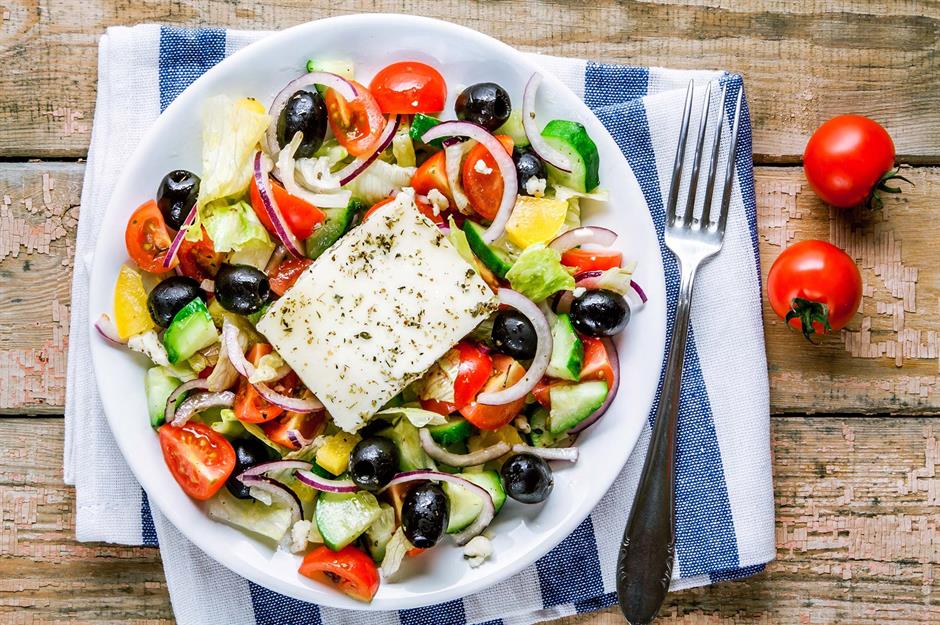
Who doesn’t enjoy tucking into freshly grilled fish served with colourful vegetables and a glug of extra-virgin olive oil? Researchers have found that, as well as reducing your risk of heart disease, stroke and cancer, the Mediterranean diet is also good for helping you get better rest. In a 2019 study, the more closely participants adhered to the principles of a Mediterranean diet, the higher their sleep quality proved to be.
5. Bananas
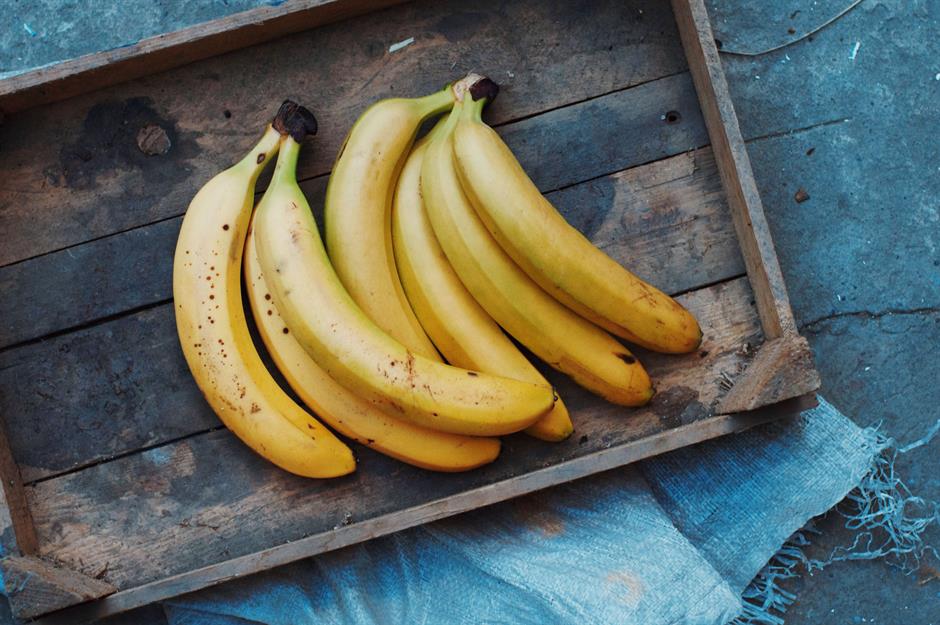
While we might think of bananas as pre-workout energy boosters, the fruits are known to have many sleep-inducing benefits. Snacking on bananas before bedtime can top up your intake of vitamin B6, which is a good thing, as low B6 levels can interfere with the synthesis of serotonin (a calming brain chemical), leading to disordered sleep. Bananas are also packed with magnesium, potassium and the amino acid tryptophan – all of which are linked with getting a good night’s sleep.
4. Cherries
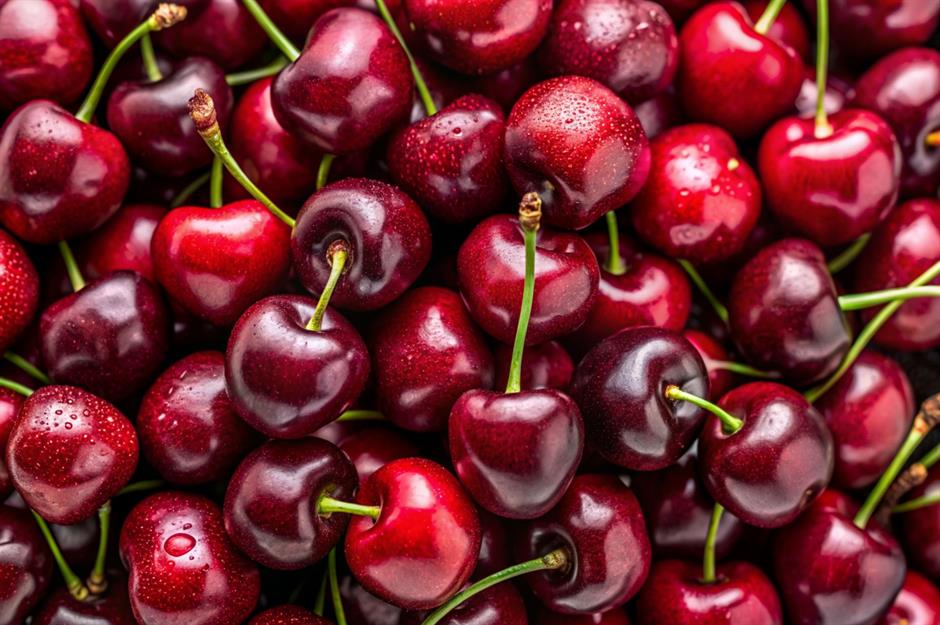
If you love the delicious crunch of a tart cherry, you're in luck. Sour Montmorency cherries naturally contain traces of the sleep-regulating hormone melatonin. Research has shown that those consuming fresh cherries or sipping tart cherry juice in the morning and at night are more likely to experience improved sleep time and quality.
Sponsored Content
3. Passionflower tea
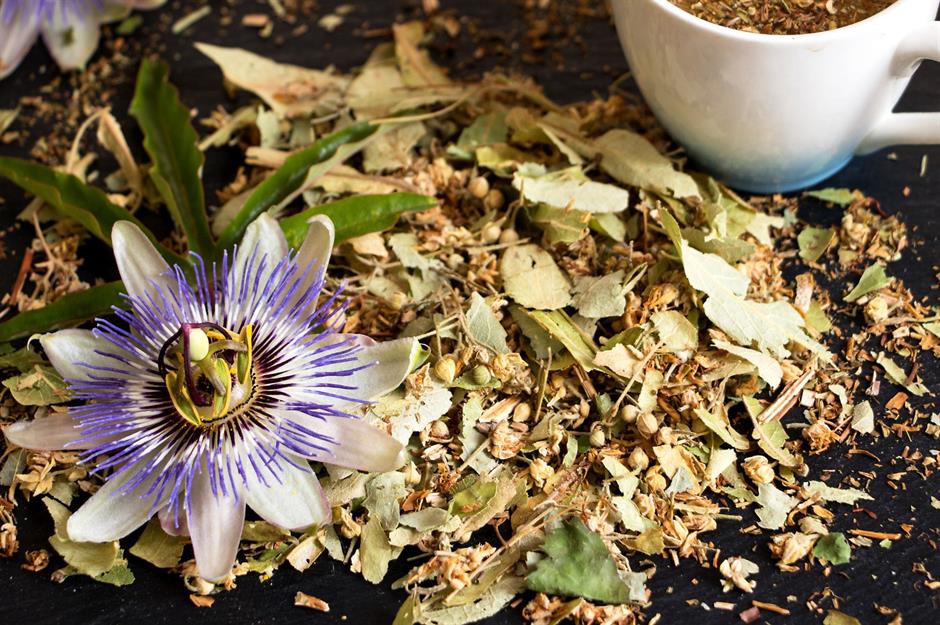
There are multiple herbal sleep-aiding teas on the market, but one proven to help enhance sleepiness is passionflower tea. A seven-day research study found that adults who drank a cup of this delicate tea before bedtime rated their sleep quality significantly better than those who were given a placebo tea. The tea is also known to help ease anxiety and reduce menopausal hot flushes.
2. Kiwi fruit
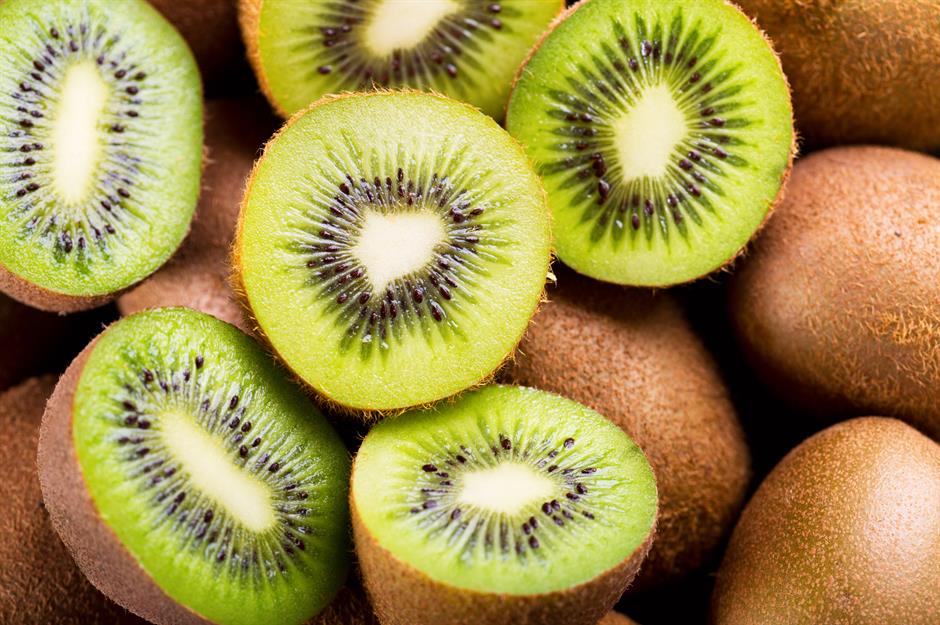
Eating kiwi fruit an hour before bed could result in you having a more peaceful night's sleep. This is largely thanks to the furry fruit's nutritional content; kiwis are full of folate (a B vitamin), serotonin and antioxidants, which combine to give sleep benefits. Rich in fibre, kiwi fruit is also a great food for improving gut health.
1. Almonds
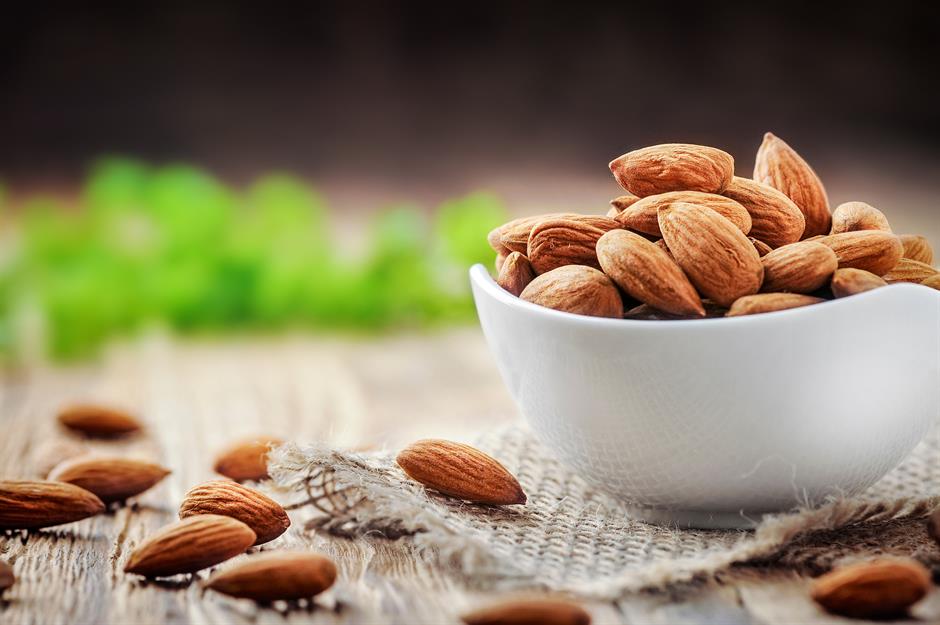
Almonds are a great source of vitamin B and magnesium, with documented slumber-promoting qualities. A research study from 2019 found that there was a 10% drop in the number of students reporting insomnia after eating 10 almonds a day for 14 days. The handy ingredient is also packed with melatonin, a hormone that regulates the body's internal clock, signalling when it's time for some sleep.
Now discover the foods you should avoid before bed
Last updated by Luke Paton.
Sponsored Content
Comments
Be the first to comment
Do you want to comment on this article? You need to be signed in for this feature